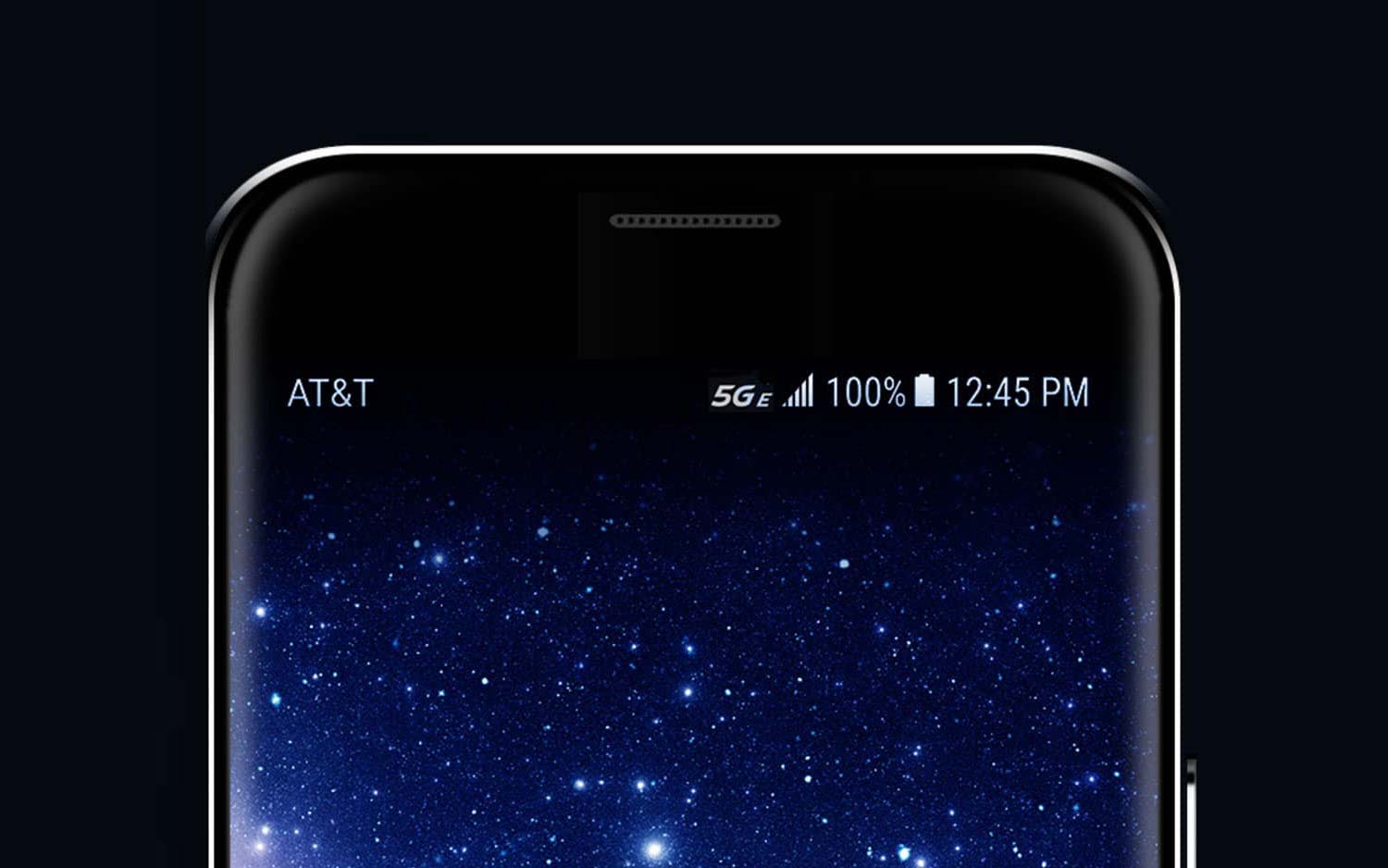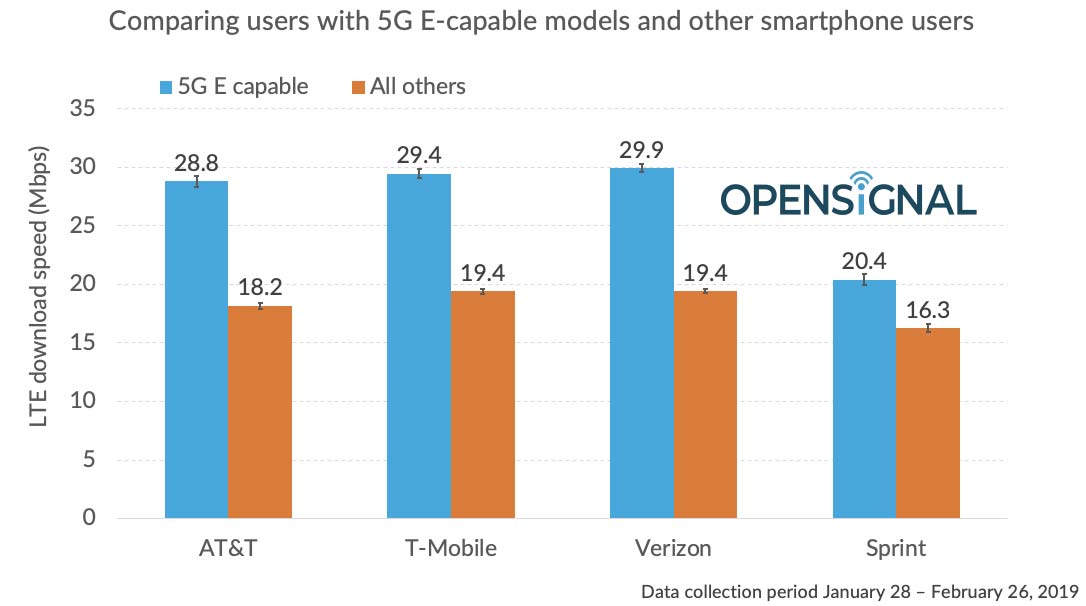It's Official: AT&T's 5GE Is Worse Than Competitors' LTE
Testing firm OpenSignal released data that shows phones on AT&T's 5G Evolution network have slower average download speeds than they would on rival carriers' LTE networks.
AT&T's 5G Evolution label for its wireless network has earned its share of mockery, even triggering a lawsuit from a rival carrier. And now a report by a network testing firm concludes that AT&T's confusingly named network produces lower average speeds than the LTE networks of some competitors.

The report comes from OpenSignal, which collects data from cell phone users to gauge the speed of assorted wireless networks. OpenSignal found that AT&T customers on that carrier's 5GE network are seeing download speeds essentially in line with what people using the same phones are seeing on other LTE networks.
Specifically, the report says that phones on AT&T's 5GE network are averaging download speeds of 28.8 Mbps. That's actually slower than the speeds of 5GE-capable phones on Verizon and T-Mobile, which had respective download averages of 29.9 Mbps and 29.4 Mbps, respectively, according to OpenSignal. AT&T did finish ahead of Sprint's 20.4 Mbps average for 5GE-capable phones.

The findings announced today (March 22) use OpenSignal data recorded between Jan. 28 and Feb. 26 of this year.
We've asked AT&T if it has any comment on the OpenSignal data, and will post any response we get back.
MORE: AT&T's 5GE Explained: What It Is, and What It Isn't
It's no surprise to see that AT&T's 5GE network isn't delivering anything close to the promised faster speeds of 5G networking since 5GE doesn't use the 5G standard at all, but is rather a marketing term that AT&T is using to tout improvements to its LTE network. AT&T has turned to technologies such as 256 QAM, 3-way carrier aggregation and 4X4 MIMO to boost its network performance. But as OpenSignal's numbers show, so have AT&T's competitors, only they use the less confusing LTE Advanced label for their networks.
Get instant access to breaking news, the hottest reviews, great deals and helpful tips.
AT&T has insisted that the 5GE label popping up on certain devices connected to its network shouldn't cause any confusion at all.
"What we’re trying to do is two things," Igal Elbaz, senior vice president for wireless technology at AT&T, told Tom's Guide back in January. "One is to let the customer know that they are in an enhanced experience market or area. So we’re letting them know this on the device. And there are close to 20 devices that support this.
All of our investment in the infrastructure and hardware is all 5G ready, so the moment the 5G software and the 5G devices show up, it's a software upgrade to our network to enable our customers to move to 5G."
AT&T's competitors, to put it mildly, aren't having it. Sprint filed a lawsuit over AT&T's claims back in February, and both Verizon and T-Mobile have criticized it, too. Expect OpenSignal's new data to direct even more criticism toward AT&T.
Philip Michaels is a Managing Editor at Tom's Guide. He's been covering personal technology since 1999 and was in the building when Steve Jobs showed off the iPhone for the first time. He's been evaluating smartphones since that first iPhone debuted in 2007, and he's been following phone carriers and smartphone plans since 2015. He has strong opinions about Apple, the Oakland Athletics, old movies and proper butchery techniques. Follow him at @PhilipMichaels.

